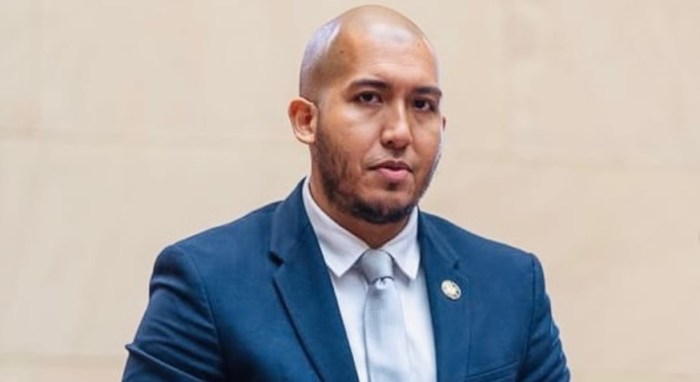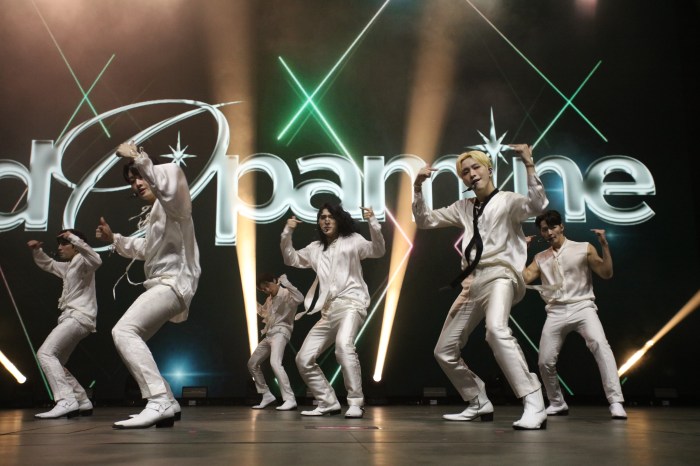By Aaron Short
At the height of Mira Stroika’s cabaret performance, as her melodic voice rings over the audience at Don Pedro’s in Williamsburg like a series of church bell intonations, she takes a brief dramatic pause. An enraptured crowd listens in anticipation of Stroika’s big finale, but instead, a waitress fills the vacuum. “Who ordered the Corona?” the waitress said, as the crowd laughed in appreciation. Stroika appreciated the ironic juxtaposition. “You can’t fight moments like that,” Stroika said after her performance. “You have to embrace them and move on.” Mira Stroika, a singer, songwriter and piano player, has been performing a cabaret act at several venues in Manhattan and Brooklyn, including the one at Don Pedro’s (90 Manhattan Avenue) which she co-produced in February since moving to New York five months ago. She can next be seen at Goodbye Blue Monday on March 27. Stroika has been performing since she was five, having taken ballet and piano classes in the San Francisco Bay area, where she grew up. Her parents are Russian and Ukranian, emigrating from Moscow with her older sister in 1981. While many Soviet Jews left the country for Israel or New York, Stroika’s family settled in San Francisco with relatives who sponsored them as refugees. “It’s a weird identity,” Stroika said. “I don’t feel American. I didn’t grow up in an American household; I grew up in America in a Russian household. I can’t fully own either.” Instead, Stroika claims that her Jewish identity is her most predominant one, strongly influencing her culture, politics and art. She often sings several traditionally Yiddish songs, as well as original songs in Yiddish during her cabaret sets, a nod to the city’s distant vaudeville tradition. “My Jewish identity is really ingrained and strong,” said Stroika. “On my parents’ library card, it said ‘Jew’ not ‘Russian’. Their nationality was Jewish, not Russian, even though my parents knew very few Jewish traditions when they came to the United States.” Stroika listened to a variety of classic and indie rock music as well as klezmer bands and Yiddish radio while growing up in Palo Alto, Calif., a leafy college-town suburb of San Francisco. She took classes in ballet and piano at a young age and performed in repertory theaters and local musical productions through much of her childhood. “I’ve definitely been haunted by “Cabaret” the musical,” Stroika said. “I would be singing, ‘Tomorrow Belongs to Me,’ a Nazi youth song, and nobody would tell me the context.” Stroika has been writing and performing her own songs at a young age too. Most of the songs in her set are original, which she writes mostly in her head before tinkering with the piano to flesh out the melody. “Usually I’ll get an idea for music or a short lyric,” said the songwriter. “I have to be moving, like walking down the street, which is a great opportunity for a new song. It’s a physical thing that comes out of you.” After two years of college, she transferred to Yale, mostly for a change of scenery and to pursue work in theater and performance art. She also began singing in Yiddish there, which influenced her songwriting. “I couldn’t look at the landscape [in California] anymore,” said Stroika. “I had a lot of life events there and I knew that I wasn’t going to grow the way that I wanted to if I would stay there.” Stroika majored in political science, took literature, music, and playwrighting classes, and started performing in solo productions there. She met several friends in the theater and performing arts community, though being surrounded by many ambitious future politicians was a strange experience. “I remember walking around Yale, thinking, ‘One of you is going to screw up this country! Which one of you is it?’” Stroika said. Stroika began developing a cabaret act in college and shortly afterwards, performing in friends’ backyards in Brooklyn during the summer. She met another cabaret performer who does a dominatrix act and decided to organize a show in Williamsburg around several acts. Stroika also enlisted the help of Chloe Bass, a college classmate and arts organizer in Bushwick with ties to a number of local artists. The productions at Don Pedro’s have given her the opportunity to refine her voice and develop a local following amid the Williamsburg scene. Stroika hopes to establish a residency there for a while. “My music is not explicitly ironic. I can see how people read it that way and I don’t have a problem with that,” Stroika said. “Everything I do has a little humor in it because the [Yiddish] songs can be dramatic. It’s really nice to not sing in English.” Mira Stroika will be performing at Goodbye Blue Monday (1087 Broadway) in Bushwick on March 27 at 9 p.m. For more information, visit www.myspace.com/mirastroika.































